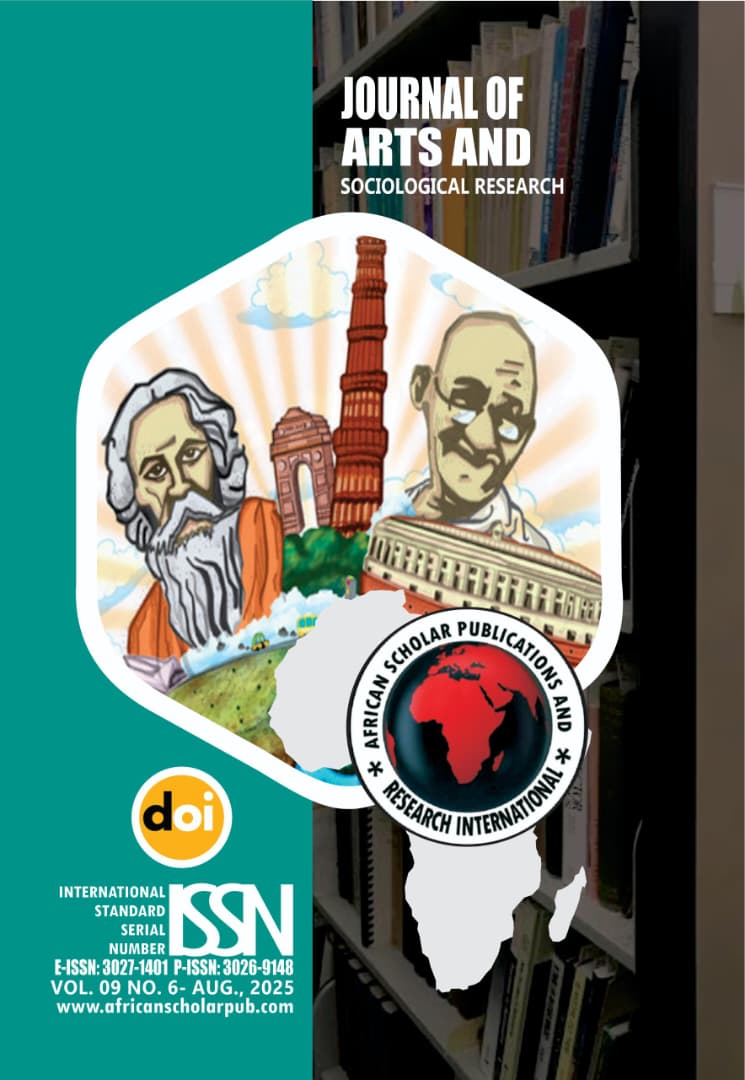Impact of Internal Displacement and Resettlement on Social Cohesion in Benue State, Nigeria
Abstract
This study investigated the impact of internal displacement and resettlement on social cohesion in Benue State, Nigeria, focusing on the relationship between internally displaced persons (IDPs) and host communities. Guided by two research questions and two hypotheses tested at a 0.05 level of significance, the study adopted a survey research design. The population comprised 415,347 IDPs, including 108,031 in formal camps and 307,316 in informal settlements or with host families. Using Leslie Kish’s formula, a sample of 384 participants, including IDPs, host community members, and stakeholders, was drawn with a 95% confidence level and a 5% margin of error. A multi-stage sampling technique was employed, combining purposive selection of camps and communities with stratified random sampling to ensure demographic representation. Data were collected through a structured questionnaire, piloted for validity and reliability, yielding a Cronbach’s Alpha coefficient of 0.87. Analyses employed descriptive and inferential statistics, including means, percentages, standard deviations, and regression analysis via SPSS. Findings indicate that internal displacement significantly undermines social relationships among IDPs. Weakened cohesion, increased conflict, heightened insecurity, and breakdown of social ties were found to predict deteriorating social relationships. Displacement disrupts communal networks, erodes trust, and fosters suspicion, reducing cooperation between IDPs and host communities. Loss of livelihood also significantly affects perceptions of economic equality, with unequal access to resources, land-related tensions, and disparities in service provision heightening marginalization and frustration. Economic deprivation exacerbates social tensions and undermines community harmony, highlighting the need for livelihood restoration and equitable inclusion programs. Based on these findings, the study recommends policies to enhance social cohesion through improved resource management, equitable aid distribution, and initiatives to rebuild trust and social networks. The research contributes to understanding forced migration in African contexts, emphasizing the social and economic challenges of displacement while highlighting strategies for resilience and peaceful coexistence.
Keywords:
Internal displacement, social cohesion, host communities, displaced persons (IDPs), Livelihood, Community ResilienceDownloads
Downloads
ACCESSES
Published
Issue
Section
License
Copyright (c) 2025 Prof. Andrew Ezadueyan Zamani, Dr. Usman Alhaji Yusuf, Iwanger Ruth Samuel (Author)

This work is licensed under a Creative Commons Attribution 4.0 International License.


















